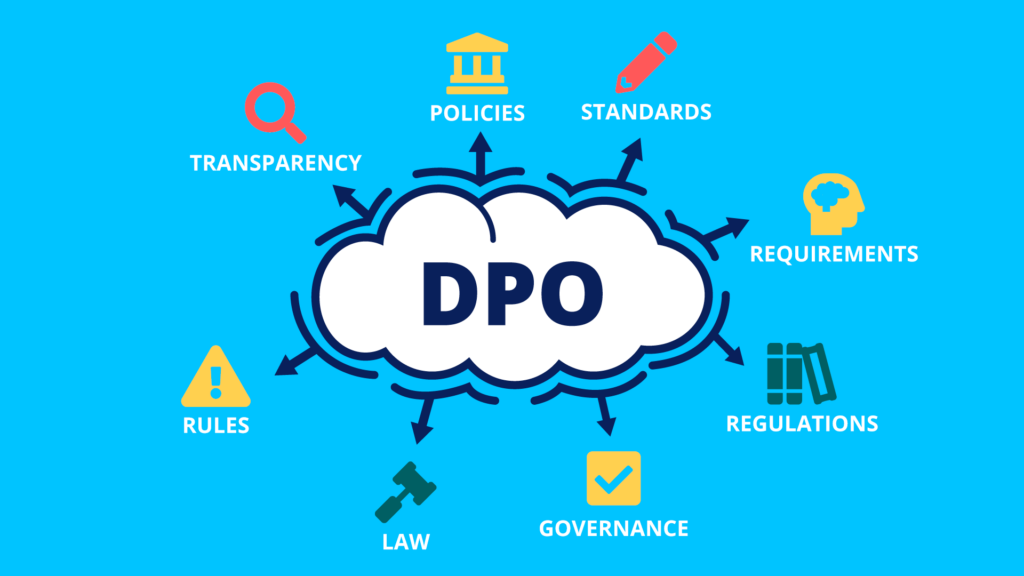Appointing a Data Protection Officer (DPO) is a significant step in ensuring compliance with data protection regulations. However, this appointment does not absolve the company of its compliance responsibilities. In reality, the role of the officer is to guide and advise, not to shoulder the entire burden of compliance. As DPO for companies around the world, TechGDPR has a defined DPO program to review documentation, conduct training and audits. Although other DPOs may adopt a different approach, the company must remain engaged. Companies must work closely with the DPO to stay informed and ensure adherence to data protection laws. Ultimately, the liability for data protection remains with the company, making active involvement, continuous collaboration and oversight essential. This article explains the necessary company involvement once the DPO is appointed and the collaborative efforts required to maintain compliance.
Active company involvement in DPO activities
Time involvement
When a company appoints a DPO, it must be prepared to invest time into maintaining compliance. Compliance is not only a state to aim for, but must also be maintained. Compliance does not stop at appointing one. The DPO, while knowledgeable and skilled, cannot single-handedly ensure the company’s adherence to data protection laws. Regular meetings between the DPO and company leadership are essential to address open and emerging compliance issues.
Reasonable time involvement for regular meetings might range between 30 minutes to an hour every 2 weeks or monthly. This depends on the size, the industry of the company and the number of persons involved. Other activities such as training and compliance audits will require 2 to 10 hours respectively. This will depend on the training needs of the company and scope of the audit. Without this active involvement, the DPO will lack the insights necessary to effectively manage data protection risks. Furthermore, a fast evolving regulatory landscape requires continuous monitoring and adaptation. By dedicating time to collaborate with their DPO, companies can anticipate and mitigate potential adverse impacts on business operations. This proactive approach not only protects the organisation but also builds trust with customers and stakeholders. Ultimately, the time invested in supporting the DPO is an investment in the company’s reputation and long-term success.

Team involvement
Companies should plan, resource and facilitate the involvement of relevant team members to support DPO efforts. This involvement is vital because data protection is an organisation-wide responsibility extending beyond the DPO expertise. By engaging various departments such as IT, HR, legal, and marketing, companies ensure comprehensive coverage of its operations. Each department handles different types of data and is responsible for specific processing activities. This makes department-specific participation vital in data mapping (Article 30 of the GDPR), identifying risks and implementing effective safeguards. Collaboration fosters a culture of data protection awareness, helping to embed compliance into the company’s daily operations. Moreover, involving team members allows for more efficient and timely responses to compliance issues. This is better than making all communication flow mandatorily through one single person in the company. Such collective effort minimises the risk of a single point of failure. It also ensures that the DPO is able to maintain actual oversight of company operations.
Information & documentation
A DPO cannot function efficiently without the full cooperation of a company. Companies must be prepared to provide comprehensive information and documentation to support DPO efforts. This includes information about data processing activities, access to internal policies, and records of data breaches, details about data subjects, the purpose of data processing, data retention periods, data breaches or security incidents, as well as other documentation and systems relevant to data protection compliance. This is crucial because the DPO relies on accurate and up-to-date information to assess compliance with data protection laws effectively. By providing information, companies empower their DPO to conduct thorough assessments, identify potential compliance issues, implement appropriate safeguards and offer sound advice on mitigating risks. Additionally, proper documentation supports the DPO in demonstrating compliance to regulatory authorities, which can protect the company during audits or investigations. Open communication and information sharing are essential for ensuring ongoing compliance and mitigating potential legal and reputational damage. Ensuring the DPO has all necessary information and documentation not only aids in compliance but also enhances the company’s overall governance and trustworthiness. Since DPOs are bound by confidentiality, companies may safely share information.
Adequate resourcing
Article 38(2) of the GDPR states that organisations are required to provide the DPO with the necessary resources to carry out their tasks and maintain their expert knowledge. This includes allocating a sufficient budget and access to the highest management level ensuring that the DPO is consulted before making key-decisions. Without these resources, the DPO cannot effectively monitor compliance, conduct audits, or provide essential training to employees. Inadequate support undermines the DPO’s ability to fulfil their regulatory duties.
According to the EDPB (formerly known as Working Party 29) Guidelines on Data Protection Officers, the following resources should be provided to the DPO:
- active support of the DPO’s function by senior management;
- sufficient time for DPOs to fulfil their tasks;
- adequate support in terms of financial resources, infrastructure (premises, facilities, equipment) and staff where appropriate;
- official communication of the designation of the DPO to all staff;
- access to other services within the organisation so that DPOs can receive essential support, input or information from those other services;
- continuous training.
Ensuring proper resourcing is not only a legal obligation but also a strategic investment in the company’s data protection framework. Failing to properly resource can lead to compliance risks and potential penalties for the company.
Responsiveness
Open communication is important for a successful relationship with the DPO. Responsiveness on the company’s part ensures that the DPO has timely access to requested information and resources, enabling them to fulfil their duties accurately. Companies must be responsive to the DPO’s requests for information, data, or support. This includes timely response to emails, attending meetings, participating in data protection compliance audits, training, etc. By promptly addressing the DPO’s requests, companies support in identifying and mitigating their potential compliance risks. Ignoring requests or delaying responses to the DPO can lead to oversight, lapse of statutory deadlines and non-compliance e.g. failing to acknowledge or fulfil a data subject request, or notifying the supervisory authorities of a reportable data breach. This exposes the company to significant legal and financial risks. Therefore, maintaining a proactive and supportive relationship with the DPO is crucial for upholding data privacy standards and protecting the company’s interests.
Ensure active engagement with your DPO
In summary, appointing a DPO is only a part of a company’s compliance journey. True compliance requires the company to commit time, involve team members, provide necessary information and documentation, allocate adequate resources and respond in a timely manner to requests. While the DPO offers valuable advisory and oversees compliance activities, the ultimate responsibility for compliance will always rest with the company. So, when unsure how to interact with your DPO after appointing one, make sure to ask and clarify the expected staff involvement in your organisation. Active involvement and continuous support for the DPO are essential to maintaining data protection compliance. By embracing these responsibilities, companies can ensure they not only meet regulatory requirements but also uphold the highest standards of data privacy and security.
